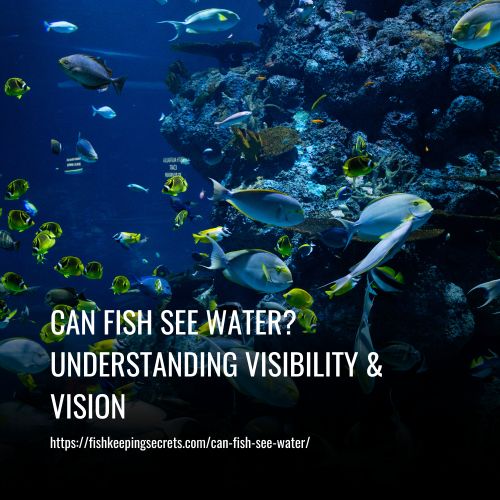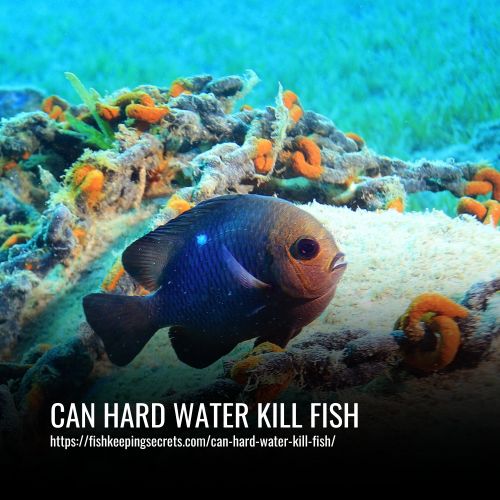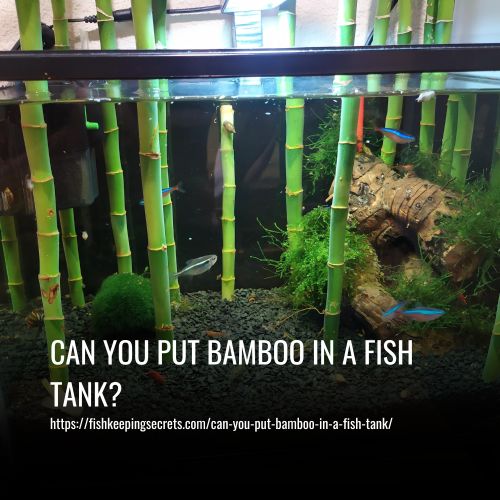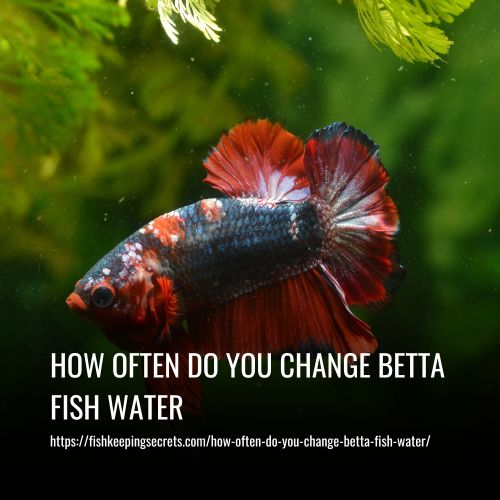Can Fish See Water? Understanding Visibility & Vision
This post contains affiliate links. As an Amazon Associate, we earn from qualifying purchases.
No, fish cannot see water. Just like humans cannot see air, fish also cannot see water due to the low refractive index of water. Water has a slightly higher refractive index than air, but it is still lower than glass. Therefore, fish do not have the ability to see water.

Why Don’t Fish See Water
Fish are constantly surrounded by the aquatic environment, but their brains work to filter it out and save vital processing power. This means that they view water the same way we view air—they don’t take notice of it unless something is blocking or obstructing its flow. That being said, it is important to make sure that your fish’s tank is kept clean and well-maintained in order to keep them healthy and happy.
Unobstructed channels of water are essential for oxygen exchange so you want to ensure that there aren’t any rocks, decorations, or plants hindering the current of movement. Additionally, be sure to regularly change out 10-15% of the tank’s water every one to two weeks in order to remove dirt, debris, and toxins from the aquarium.
Doing this will help keep your fish healthier and more vibrant by preserving a safe and stimulating environment for them.
Can Fish See Humans
It is well established that fish are able to see humans and even recognize familiar faces. This evidence supports the idea that pet fish do possess a higher intelligence level than previously believed. Scientists have conducted various studies to understand the brains of fish and how they process visual information, with fascinating results. They have found that fish can remember certain objects, can distinguish different colors and shapes, have a sense of directionality, and may even be able to decipher emotions.
While some species are naturally more intelligent than others, having an understanding of your own pet fish’s cognitive capabilities is still important. If you have a pet fish, it might help to research the particular breed or type of fish as each species will often have its own individual abilities.
Additionally, providing your pet fish with ample space for swimming along with a varied diet and clean environment can contribute towards promoting their overall well-being and mental health.
How Can Fish See
Fish have highly specialized eyes that are adapted to their diverse aquatic environments. Their eyes are built similarly to humans, featuring the same components such as a cornea, pupil, lens, and so forth.
However, how they process visual stimuli differs greatly due to the variety of habitats they inhabit. For example, deep sea fish may have improved vision in murky waters whereas coral reef fish may have a better color vision in brighter conditions.
Additionally, the shape of the eye can vary depending on whether a fish is predisposed to predator-prey dynamics or mate selection. Consequently, understanding the needs and behaviors of your fish is important when considering adding toys or decorations to their habitat.
How Do Fish See Underwater
Fish have eyes that are similar to but also different from mammals. Light enters the fish’s eye through the cornea, passing through the pupil and reaching the retina. Then, either cone or rod cells convert the light into electrical pulses, which are sent to the brain and create an image.
A fish’s eye contains various components such as a cornea, lens, iris, and retina. Though these components are similar to human eyes, there are some differences that allow fish to see in their underwater environment.
For example, some species of fish have enlarged pupils that allow more light underwater, while others have eye colors that help them blend in with their surroundings. It is fascinating how adaptation has allowed these animals to survive in watery environments!
Can Fish See Clearly Underwater
Fish possess eyes adapted to the underwater environment. They have almost-spherical, hard lenses that allow them to see everything up to 1 meter away clearly without the need for goggles. Some fish also have a nictitating membrane or an extension of skin that covers parts of their eyes providing protection and moistening their eye.
The clarity of their vision will depend on the water conditions, including light penetration, wind action, suspended particles, algae, and the angle of the sun. Overall, while fish can see movement and contrast they cannot see detail very well.
How Far Can Fish See
Fish have limited underwater vision and are typically near-sighted, meaning they can focus better on items that are close to their eyes. To adjust their focus, they often move the lens closer to the retina. Unfortunately, water conditions usually aren’t suitable for long-distance vision due to poor visibility.
Despite this, fish have an advantage over humans in terms of viewing range because of their side-facing eyes which give them a broad panoramic view. This is why fisheye camera lenses exist – they mimic this feature of fish.
Ultimately, it’s important to provide a healthy environment with good water quality so that your fish can take in what they can see clearly and make the most out of their limited vision.
Fish Vision Vs. Human Vision
Fish have many features in their eyes which differ from ours. For example, they do not possess lachrymal glands because they are living in water and do not need them, nor do they have eyelids. Instead, they rely on a nictitating membrane to give them protection while they feed.
Additionally, the fish lens is purely spherical and has a higher refractive index than our own lens which is fixed in shape. Fish can see a wider spectrum of colors that are hidden from us humans and also have superior peripheral vision as well.
FAQs
Fish can see more colors than humans thanks to their receptors for red, green, and blue light, along with rod and cone cells that allow them to detect color. This allows fish living in shallow waters to take advantage of colorful prey. However, deeper waters can prevent fish from seeing color because the amount of light is greatly reduced. The different water depths range from the epipelagic zone – surface to 656 feet – to the hadalpelagic zone – 19,686 to 35,797 feet – which has very little visible light. Fish that live closer to the surface and have access to more light can perceive a greater range of colors compared to their deep-sea relatives.
Ultraviolet light is an invisible type of electromagnetic radiation that comes from the sun and can be seen by some fish. This light penetrates further into the water, so deeper-living fish are more likely to see it and as a result, it has been found to play an important role in many aspects of their lives. For example, juvenile brown trout rely on UV vision to detect zooplankton to eat, while cichlids use UV light for mate selection. Ambon damselfish also use UV lights to distinguish their own species from similar-looking fish.
Fish possess special adaptations that allow them to better see and detect movement in the dark. Their retinas capture larger light frequencies, resulting in clearer vision when it’s dark. However, this vision is limited to muddy or murky water. In addition to their eyes, fish also rely on their sensory organs during the night, which is more sensitive when the lights are off. Fish typically sleep when it’s dark, reducing their brain activity by half and minimizing their movements.
Conclusion
Though it can seem a bit paradoxical, fish are simply adapted to see well in water, just as humans have evolved to see fine details on land. As long as fish are not chronically exposed to airborne dissolved substances or excessive water turbidity, they can make out fine details from the surrounding environment and other aquatic life forms.
Even though it might seem strange that they don’t really recognize the water around them, there is no doubt that their amazing eyesight helps them survive and thrive in their aquatic environment.






